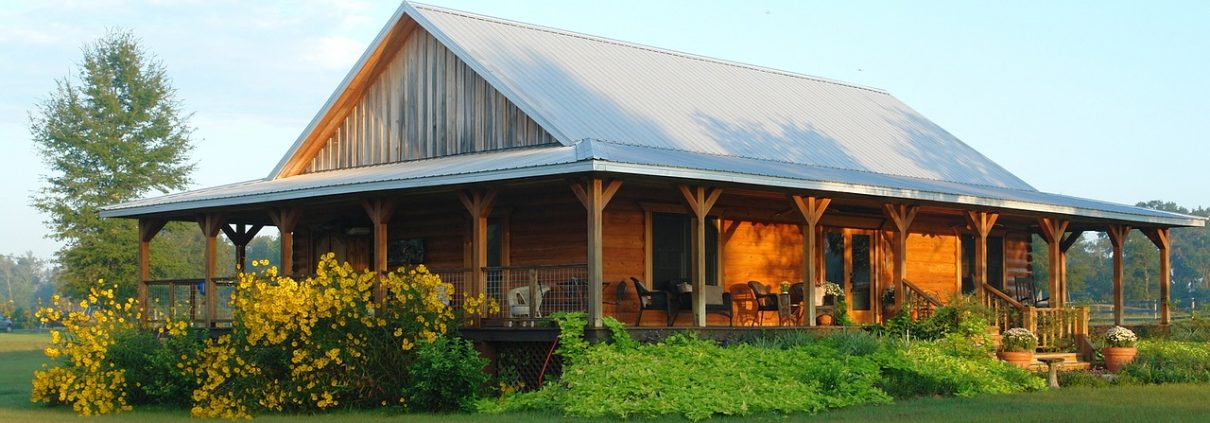Helpful COVID-19 Resources And Information For Land REALTORS®
The National Association of REALTORS® and its NAR Commercial Affiliates, including RLI, have been compiling helpful information and resources for REALTORS®. This page features highlights of the various programs and resources available to real estate agents impacted by the COVID-19 outbreak. We will do our best to keep this page updated with any additional resources that may be of value to our members and the industry.
NAR Blog Post on COVID-19 Relief Package Passed December 2020
This blog post from December 21, 2020 provides an overview of what’s inside the year-end relief package passed by Congress, including impacts on the real estate industry at large. Read here.
RLI Voices Of Land Podcast Episodes Related to COVID-19 and The Land Market
The new ‘The Voices Of Land RLI Podcast’, presented by the LANDU Education Program, featuring Accredited Land Consultant (ALC) host Justin Osborn just released two episodes for land agents discussing the impacts of COVID-19 on land real estate markets. The Voices of Land RLI Podcast recently released two episodes on the topic, the first being with guest Russell Riggs, NAR Legislative Policy Liaison for RLI, discussing What Land Agents Need To Know About The COVID-19 Stimulus Package; and another with guest KC Conway, CCIM Chief Economist, on The Economic Impact of COVID-19 on the Land Market. Listen now.
Virtual Round Table: COVID-19 Impacts On The Land Market
The REALTORS® Land Institute 2020 Future Leaders Committee presents a panel of Accredited Land Consultant (ALC) land experts from across the country in various different land markets to shed light on the impacts of the Coronavirus (COVID-19) outbreak on land values and land market trends.
We’ve also captured the highlights from this recording for each land segment in a series of posts on the RLI Blog:
- Are Buyers Moving To Recreational Land In The Age Of COVID-19?
- COVID-19 Impacts on Agricultural Tillable Farmland
- What Ranchers Need To Know About COVID-19’s Impacts on The Ranch Land Market
- COVID-19 Impacts on Commercial Development Land
- COVID-19 Impacts on Timberland
- COVID-19 Impacts on Rural Residential Hobby Farms
Webinar: COVID-19 Impacts On The Residential Land Market
The housing market entered 2020 with momentum as home-buyers were enthusiastic about low mortgage rates and the multifamily market continued its expansion. The sudden shock brought on by COVID-19 is impacting the housing market and wider economy as uncertainty and layoffs defer decision making.
This webinar will:
- Help you build a playbook in real-time to navigate through today’s marketplace.
- Give insights into the current outlook from home builders for land transactions.
- Showcase on-the-ground experiences with pushing forward entitlements in today’s market.
Watch the recording to get pertinent information from Senior Managing Principal Tim Sullivan and Chief Economist Ali Wolf of Meyers Research in this RLI Hot Topic Webinar from Tuesday, April 28. Hear updates on this topic from our presenters during their company’s weekly webinars.
NAR’s ‘Right Tools, Right Now’ Program
NAR’s ‘Right Tools, Right Now‘ initiative makes numerous valuable resources available to the association’s 1.4 million members at reduced or no cost.
Members TeleHealth
Members TeleHealth, part of NAR’s ‘Right Tools, Right Now’ initiative, provides around-the-clock access to non-emergency healthcare from more than 2,300 board-certified U.S. physicians. Common issues addressed through telemedicine include allergies, asthma, rashes, joint aches, flu and nausea, among others. Beginning April 2, NAR is funding two months of services for members who currently lack access to telemedicine and enroll in this program by April 15. Recognizing that the opportunity will likely draw significant interest from its members, NAR has also negotiated a discounted rate for those who wish to retain coverage following the two month, no-cost period.
“As we continue to solicit input from our members regarding COVID-19’s impact on their lives and businesses, NAR is grateful to be able to offer expanded access to potentially lifesaving telemedicine services,” said NAR President Vince Malta, broker at Malta & Co., Inc., in San Francisco, CA. “Medical professionals are urging Americans who are sick to stay home, and telemedicine is playing a critical role protecting our communities and our health care workers. We continue to encourage members to limit their exposure and decrease the chance of spreading illnesses to others.” Learn more about this Members TeleHealth.
Coronavirus SBA CARES Act
NAR’s Federal Advocacy team has been working closely with Congress and the Administration to ensure the interests of REALTORS® and their clients are protected in any federal action in response to COVID-19. Many REALTORS® are small businesses, or work with them as clients. In the most recent relief package passed into law, the “Coronavirus Aid, Relief, and Economic Security Act” or CARES Act, there were significant provisions aimed at assisting small businesses during this difficult time. The CARES Act appropriates more than $360 billion total for new Small Business Administration (SBA) programs – the 7(a) Paycheck Protection Program loans and the Economic Injury Disaster Loans (EIDL) advance grants program. View FAQs and learn more from NAR.
Congress Clears Coronavirus Relief Bill
6/17/2020 The Small Business Administration and U.S. Treasury Department on Wednesday rolled out major updates to the Paycheck Protection Program, offering automatic forgiveness for certain independent contractors and creating a broader application form for forgiveness. Read more.
4/23/2020 The U.S. House passed legislation Thursday providing a fresh round of funding for coronavirus small-business relief programs championed by the National Association of REALTORS® and available to REALTORS® through the CARES Act. The Senate passed the bill on Tuesday.
President Trump is expected to sign the measure, which will clear the way for lending to resume as early as Friday under two Small Business Administration programs, the Paycheck Protection Program (PPP) and the Economic Injury Disaster Loan (EIDL) Program.
Under the agreement, the PPP will receive $310 billion in new cash, while the EIDL fund will receive an additional $60 billion. The bill sets aside $60 billion of the PPP funding for small and medium-sized community banks, which will provide extra help for self-employed individuals and small businesses that don’t have relationships with larger banks.
“The PPP and EIDL had tremendous demand. Although the rollout was rocky, this latest bill should provide enough funds for everyone who needs a loan to get it. REALTORS® still waiting should contact their lender again and keep trying,” says Shannon McGahn, senior vice president of advocacy for NAR. “We have a wealth of resources to help you through the process, including a new video just posted last night.”
The bill also includes $25 billion for coronavirus testing and $75 billion for hospitals.
Quick Guidance for REALTORS® on the PPP and EIDL From NAR
- If you’ve already applied for an EIDL: The SBA is processing applications already in their system on a first-come, first-served basis. You do not need to reapply.
- If you have not already applied for an EIDL: Check back at the SBA application page once the additional funding is signed into law.
- If you’ve already applied for a PPP loan through an SBA lender but have not been approved yet: Check with your lender to see if they are maintaining a queue of applications during the lapse or if you will need to reapply when the renewed funding comes through.
If you have not applied yet for a PPP loan through an SBA lender: Have the application form filled out and your documentation ready to provide to your lender. (For businesses with employees, have payroll documentation; for independent contractors, have your 2019 Form 1040, Schedule C, and 1099-MISC.) If you have an existing relationship with an SBA lender, you should go to that lender first once the program reopens, but be prepared to try multiple lenders, which you can find on the SBA site.
Additional Resources
- Senate Passes Deal to Replenish Coronavirus Relief Funding (4/21/2020)
- What’s in the CARES Act for Food and Agriculture? (3/26/2020)
NAR Commercial: Webinar – Insights For Commercial Executives
his webinar from April 15, 2020, covers the latest news on legislation and SBA loan programs, key transactional guidance from NAR’s legal team, and insights from commercial real estate executives on their experiences working through today’s volatility and how they are helping clients navigate changing opportunities in the coming months. Watch recording.
CCIM: Coronavirus (COVID-19) Resources and Guidance For Commercial Agents
CCIM Institute has prepared a resource page for commercial real estate professionals to provide additional professional guidance around Coronavirus (COVID-19). This page hosts information about FEMA extensions, Tax Extensions, and updates on other legislative advocacy issues.
SIOR: COVID-19 and CRE: What You Should Know
As CRE leaders around the globe, you are feeling the impact of COVID-19. SIOR has provided a collection of resources available to you to keep you up-to-date on latest news and industry impacts.
IREM: COVID-19 Resources and Information for Property Managers
If you are a property manager, this page from IREM is filled with resources for dealing with the impacts of COVID-19.












 About the Author: David Fisher is the managing partner for
About the Author: David Fisher is the managing partner for












